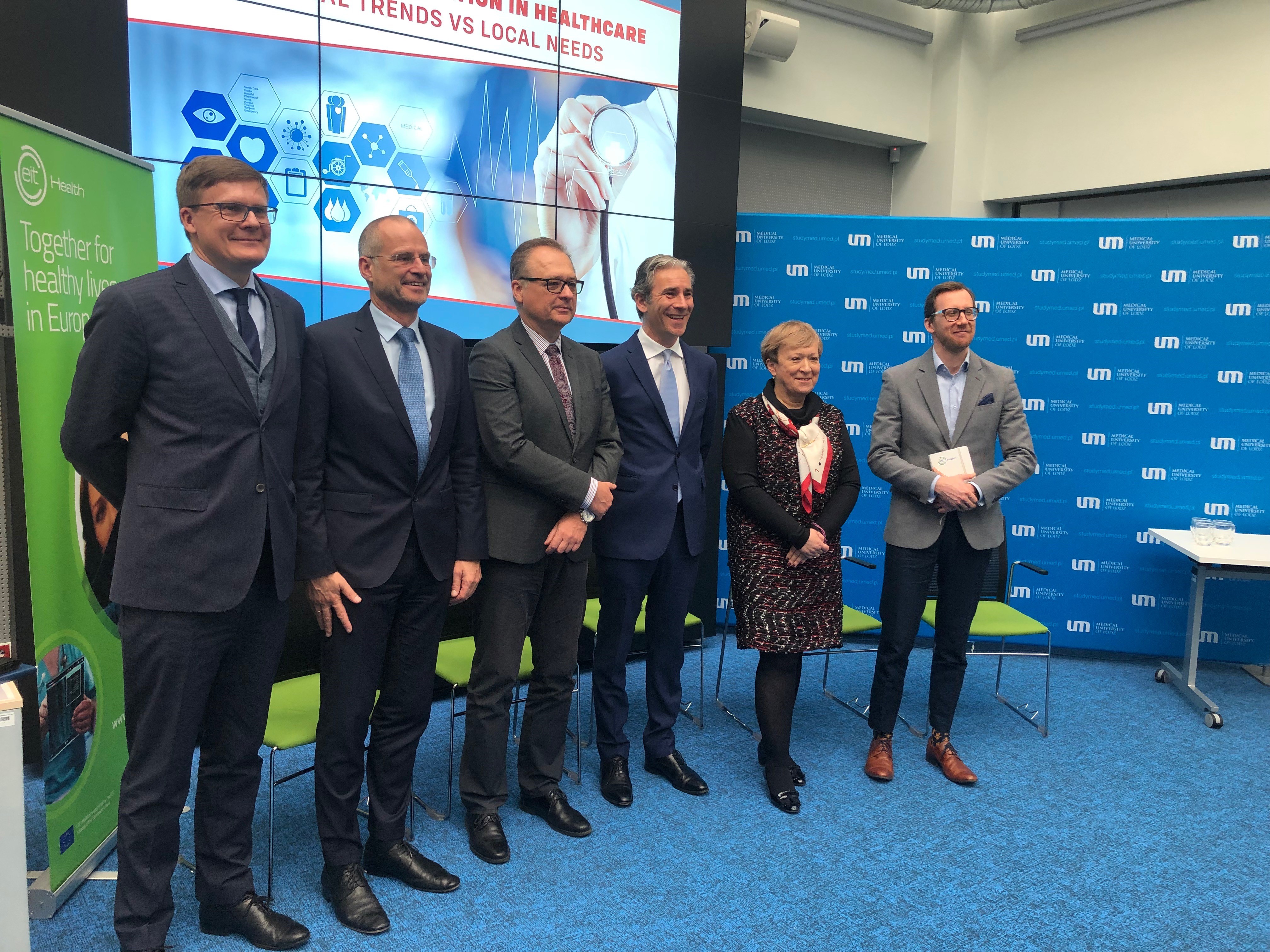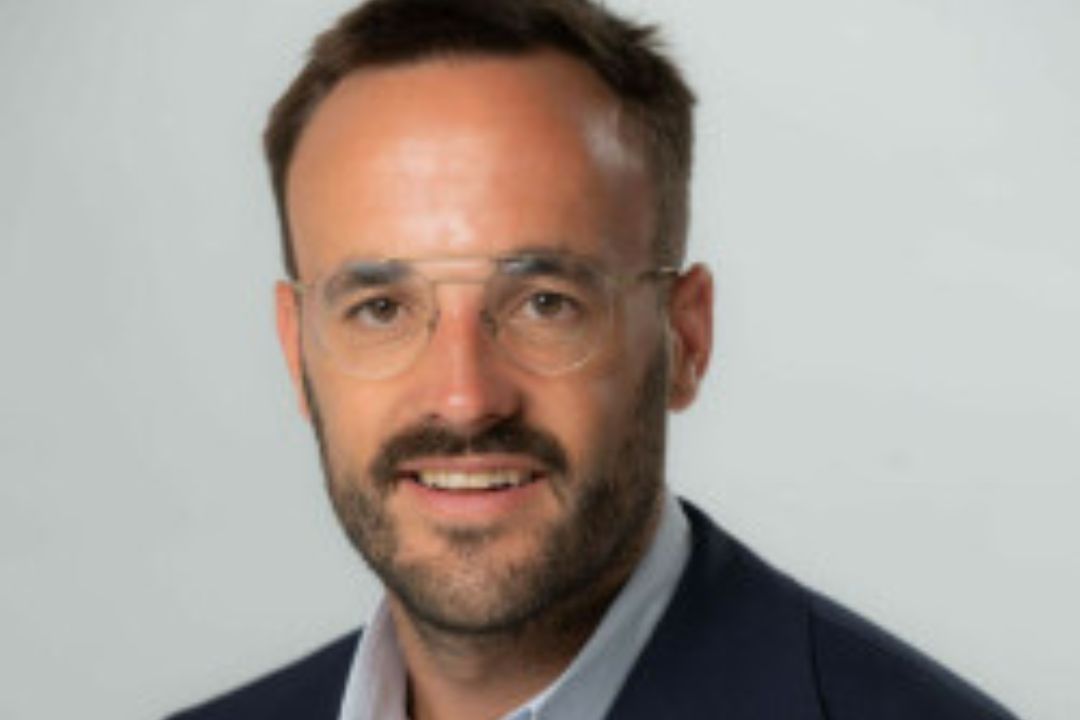6th March 2019
Medical University of Łódź hosted an exclusive debate around digital transformation, with EIT Health participation
Deep Trends that are Transforming the Future of Health Technology were shared during an exclusive debate organised on 4 March 2019 by Medical University of Łódź, Core Partner of EIT Health, in participation with EIT Health InnoStars.

“Here, we’re creating the future”, said Professor Lucyna Woźniak, Vice-Rector for Research and International Relations, Medical University of Łódź – Core Partner of EIT Health, opening the exclusive lecture of Henk de Jong, Chief of International Markets, Royal Philips, regarding digital transformation and deep trends in the healthcare industry.
The lecture was held at Medical University of Łódź, Poland, 4 March 2019.
Digital Transformation Must Be a Holistic Journey
“Change can be undone but transformation cannot”, underlined Henk de Jong, defining transformation as a mindset. “If you talk about transformation, you have to make a first step. Digital transformation does not mean technology only. It’s a binary 0:1 game. If you don’t transform while competition or the society does, you are disrupted”, said Henk de Jong. Digital transformation is a deep conversion of business activities, competencies, and business models to fully leverage the opportunities of a digital platform. It touches the internal organisation, customer relations, product and market.
Digital transformation in healthcare means, among others, creating a digital services platform as well as facilitating management and delivery of health services. It involves storage and exchange of clinical data, inter-professional communication, clinical decision support systems, patient-provider interaction, service delivery and education.
This platform includes primary care (e.g. family doctors), secondary care (e.g. hospitals), and other medical (research) facilities, like community-based health care solutions and outpatient care services. Digital transformation is something that we have to do together as a society. The goal is to have an inclusive platform open to everyone.
Deep Trends that are Transforming the Future of Health Technology
Henk de Jong indicated four top tier trends that we are observing now:
- Global resource constraints;
- Aging populations and the rise of chronic illness;
- Increasing consumer engagement;
- Digitalization (such as cloud, IoT, AI, sensors, continuous health tracking, population health, Augmented Reality, Image-guided therapy, Genomics, Computational pathology, Advanced visualization).
Outcome of the digital transformation should be measured on impacting the Quadruple Aim: improved patient experience, better health outcomes, improved staff experience, lower cost or productivity of care (reducing the per capita cost of healthcare). “You are not able to do this without data and digital transformation. Anonymous data can be treated as a base of better health outcomes, for instance by anonymously comparing medical examinations in the cloud”, stated Henk de Jong.
The lecture was finalised with a panel debate with participation of Mikołaj Gurdała, Innovation and Regional Manager of EIT Health InnoStars North Eastern Europe, professor Lucyna Woźnak, Vice-Rector for Research and International Affairs, Medical University of Łódź, professor Paweł Ptaszyński, Deputy Director for Medical and Organisation Affairs, Central Clinical Hospital, Reiner Schlatmann, CEO of Philips Central and Eastern Europe, Henk de Jong, Chief of International Markets, Royal Philips. Mikołaj Gurdała underlined the necessity of encouraging professionals to use new technologies, especially related to secondary care.
“We need to focus on education and converting professionals into tech-savvy specialists to run digital transformation in healthcare successfully”, summed up Mikołaj Gurdała. Professor Lucyna Woźniak underlined that we were now on the very similar stage of the use of some technologies (e.g. biomolecular biomarkers) as we were a few years ago. The reason stands behind lack of education of consumers, healthcare stakeholders as well as well adaptation of health system to new technologies. “That is why we need mutual trust, break silos and work on closer transfer of innovation to end-users to provide inclusive care for everybody”, said professor Lucyna Woźniak.
Europe's top health start-ups take centre stage: EIT Health Catapult winners are revealed at HLTH Europe

2025 Catapult programme winners announced.
Finding Europe’s next healthtech leaders: Insights from Antoine D’Hollander

Insights from Antoine D’Hollander, Capricorn Partners.
EIT Health supports 17 promising deep tech start-ups bridge the ‘Valley of Death’

Providing start-ups with the right support.